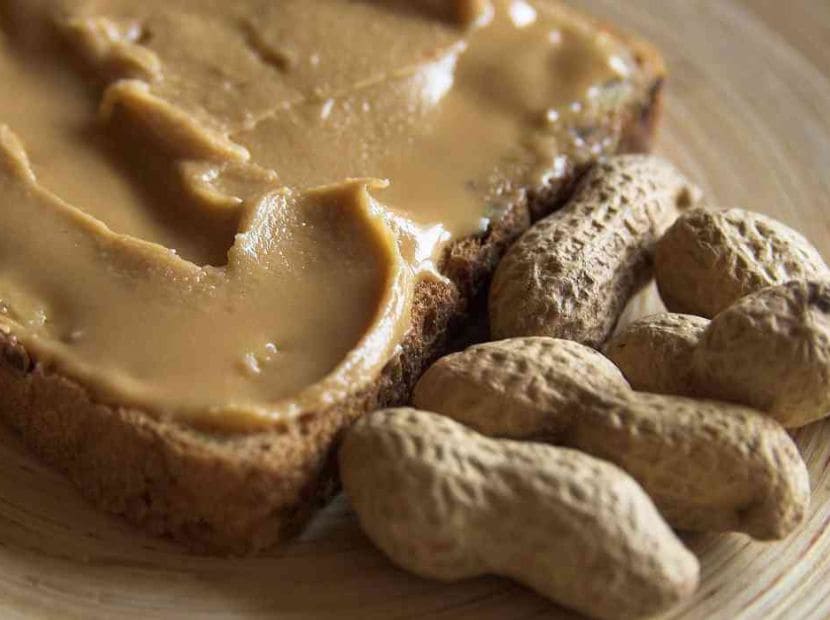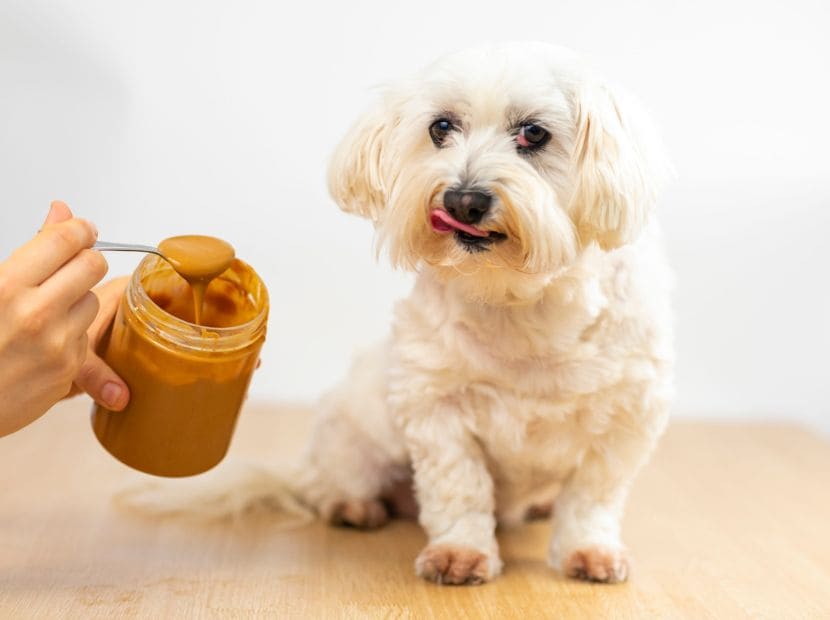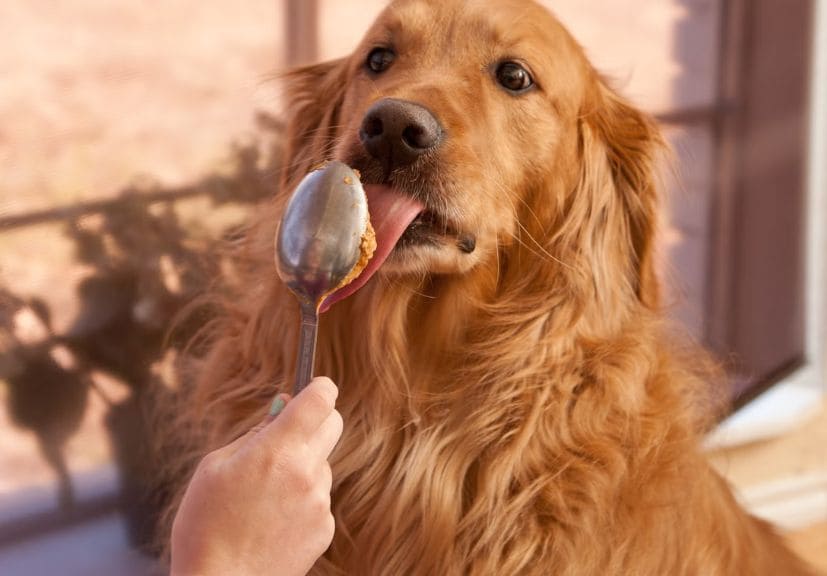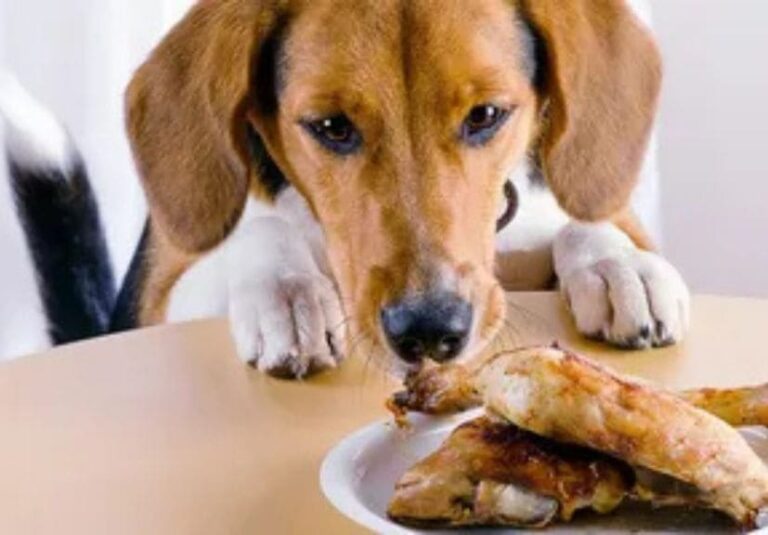Can Dogs Eat Peanut Butter?
Yes, in most cases, dogs can eat peanut butter! Peanut butter is not classified as a toxic dog food, and it is generally safe for your canine companion when fed in moderation. However, as with any treat, the devil is in the details. Not all peanut butter is equal; some varieties may contain harmful ingredients. We’ll go over those concerns later.
Peanut butter, when chosen carefully, can offer nutritional benefits and make for a tasty, enriching treat. But it’s essential to be vigilant about the type of peanut butter you provide and the quantity.
Ingredients to Watch Out For in Peanut Butter

While peanut butter can be safe for dogs, not all brands and types are created with pets in mind. Some ingredients commonly added to peanut butter can be harmful, or even deadly, to your dog. Let’s take a closer look at the ingredients to avoid.
Xylitol: A Deadly Additive
One of the biggest concerns when feeding peanut butter to dogs is the artificial sweetener known as xylitol. Xylitol is highly toxic to dogs, even in small amounts. It’s found in many sugar-free products, including some brands of peanut butter.
According to the ASPCA, xylitol ingestion can lead to hypoglycemia (low blood sugar), liver failure, and even death in dogs. Symptoms of xylitol poisoning include vomiting, lethargy, loss of coordination, and seizures. Contact your veterinarian immediately if you suspect your dog has consumed peanut butter containing xylitol.
High Salt and Sugar Content
While xylitol is the most dangerous ingredient to avoid, excess salt and sugar in peanut butter can also pose health risks to dogs. Salt, in large amounts, can lead to sodium ion poisoning, which can result in symptoms like vomiting, diarrhea, tremors, and even death. Additionally, high sugar content can contribute to obesity, dental issues, and diabetes.
When buying peanut butter for your dog, choose a natural variety free from added salt and sugar. The best option is unsweetened and unsalted peanut butter.
Artificial Flavors and Preservatives
Like with human food, it’s always best to avoid artificial additives and preservatives in dog treats. Some dogs may have allergies or sensitivities to artificial flavors, which could result in digestive upset or skin reactions.
Health Benefits of Peanut Butter for Dogs!
So, can dogs eat peanut butter and benefit from it? The answer is yes! Peanut butter offers several nutritional benefits for your dog, making it a great occasional treat when served responsibly. Here are some reasons why peanut butter can be a healthy option for your dog:
- Protein: Peanut butter is packed with protein essential for muscle development and repair. Protein helps support a dog’s growth and maintains their body tissues.
- Healthy Fats: Peanut butter contains healthy fats, such as monounsaturated and polyunsaturated fats. These fats can provide energy and help maintain a shiny coat and healthy skin.
- Vitamins and Minerals: Peanut butter is rich in vitamins B and E, which are essential in maintaining a dog’s overall health. Vitamin E benefits a dog’s immune system and skin health, while B vitamins support energy metabolism.
- Low Carbohydrate Content: Peanut butter is a low-carb treat option for dogs with weight management issues, as long as it is given in moderation.
- Great Training Aid: Peanut butter can make dog training easier. Its strong aroma and taste make it a perfect reward for learning commands or when using enrichment toys like Kongs.
How Much Peanut Butter is Safe for Dogs?

While peanut butter is generally safe for dogs, portion control is crucial. Too much of this tasty treat can lead to unwanted weight gain or digestive issues, including diarrhea and vomiting.
- Small dogs: Stick to 1/2 teaspoon per serving.
- Medium dogs: 1 teaspoon per serving is a safe amount.
- Large dogs: Can usually handle up to 1 tablespoon per serving.
It’s also important to remember that peanut butter should only be offered occasionally and in moderation. It should not be a daily treat or a significant portion of your dog’s calorie intake.
How To Safely Feed Peanut Butter To Your Dog?
To safely feed peanut butter to a dog, start by selecting the right type. Always choose natural, unsalted, and unsweetened peanut butter that is free from harmful additives. The most important ingredient to avoid is xylitol, a sweetener toxic to dogs, even in small amounts. Check the label carefully to ensure there’s no xylitol or other harmful additives like excessive sugar or salt.
Once you have a safe peanut butter, practice moderation. Peanut butter is high in calories and fat, so it should be offered as an occasional treat rather than a regular part of your dog’s diet. Small dogs can have about ½ teaspoon per serving, medium dogs 1 teaspoon, and large dogs 1 tablespoon.
You can serve peanut butter in fun ways like smearing it inside a Kong toy for mental stimulation or freezing it in small cubes as a refreshing treat. Always monitor your dog for signs of allergies or digestive upset, such as itching, vomiting, or diarrhea, especially if they’re trying peanut butter for the first time.
Best Types of Peanut Butter for Dogs
When choosing peanut butter for your dog, the best option is always natural, unsalted, and unsweetened. Check the label for any harmful ingredients like xylitol or artificial additives.
Can Dogs Eat Peanut Butter and Eggs?
Yes, eggs are safe for dogs and can provide an excellent source of protein, fatty acids, and vitamins. You can combine a small amount of peanut butter with cooked eggs as a nutritious snack for your pet. However, ensure the eggs are fully cooked to avoid any risk of salmonella.
Signs of Peanut Butter Allergies in Dogs
While peanut butter can be a tasty and nutritious treat for many dogs, some dogs may have allergies or sensitivities to peanuts. Common signs of a peanut butter allergy include:
- Itching or hives
- Red, irritated skin
- Ear infections
- Vomiting or diarrhea
- Sneezing or coughing
If you notice any of these symptoms after feeding your dog peanut butter, stop giving it to them and consult your vet. In severe cases, an allergic reaction may require immediate medical attention.
Fun and Creative Ways to Serve Peanut Butter
Now that you know peanut butter is safe for most dogs, here are some fun ways to offer this delicious treat to your dog:
- Stuff a Kong Toy: One of the most popular ways to give dogs peanut butter is by stuffing it inside a toy. This keeps your dog entertained and provides mental stimulation as they try to get the peanut butter out.
- Frozen Peanut Butter Cubes: On hot days, freeze peanut butter in an ice cube tray for a refreshing, cool treat.
- Peanut Butter and Banana Dog Biscuits: Mix peanut butter with mashed bananas and bake into dog-friendly biscuits. Your dog will love the combination of flavors.
- Peanut Butter Pawsicles: To create dog-safe popsicles, blend peanut butter with yogurt and freeze it in paw-shaped molds.
- Homemade Peanut Butter Dog Treats: Make your dog treats using peanut butter, oats, and eggs. This way, you control what goes into the treat, ensuring your dog gets the best ingredients.
Peanut Butter in a Dog’s Balanced Diet
While peanut butter can provide some health benefits, it should only be used as an occasional treat. Your dog’s primary source of nutrition should always come from high-quality, healthy dog foods specifically formulated for their dietary needs. Peanut butter should complement a balanced diet, not replace it.
Facts About Peanut Butter for Dogs
- According to the Pet Poison Helpline, more than 6,000 cases of xylitol poisoning are reported each year, many of which involve dogs consuming xylitol-containing peanut butter.
- Dogs consume roughly 10% of their daily caloric intake from treats. Overfeeding high-calorie treats like peanut butter can lead to obesity, which affects over 56% of dogs in the United States, according to the Association for Pet Obesity Prevention.
Conclusion
So, can dogs eat peanut butter? The answer is yes, as long as it’s given in moderation and without harmful additives like xylitol, excessive salt, or sugar. Peanut butter can be a tasty, nutritious, and enriching treat for dogs when chosen carefully and served responsibly. Always check the ingredients before offering peanut butter to your dog, and remember that a well-balanced diet of healthy dog foods should be their primary source of nutrition. While peanut butter is not classified as a toxic dog food, being mindful of portions and ingredients can ensure that your dog enjoys this popular treat safely. At PetJazeera we keep sharing informational articles to help you keep your dog healthy.




